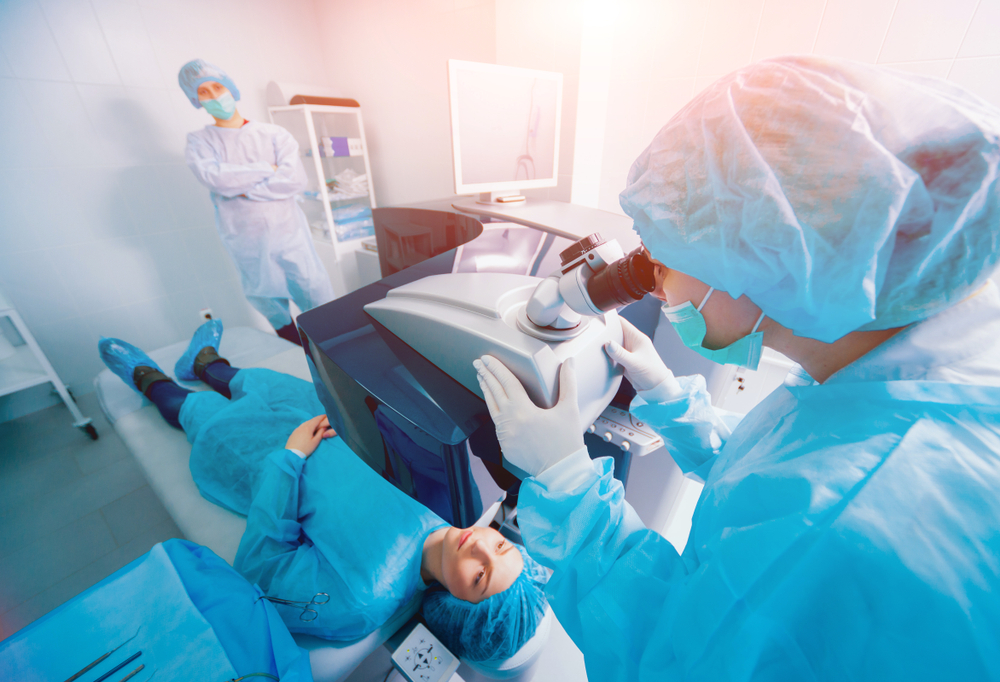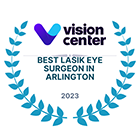
LASIK (Laser-Assisted In-Situ Keratomileusis) surgery is performed by an ophthalmologist and is used to correct imperfections in the eyes' ability to focus. You can find more information about this procedure on this page. Most patients do not need contacts or glasses again, even when they get older. It is important to remember, though, that like any other surgery, the LASIK procedure has certain risks and potential complications. Therefore, in this article, you will find 14 things to know about getting this type of eye surgery:
- Information about the surgeon
- Free consultation
- Price
- Contraindications
- Contacts before surgery
- The use of makeup, perfume, and lotion before the surgery
- Use of eye drops
- Pain
- The first 24 hours after the surgery
- Risks and complications
- Perfect vision after the surgery
- Restrictions after the surgery
- Safety
- Alternatives to LASIK
1. Information about the surgeon
It is important to make sure that you have found an expert in this field. Therefore, you need to do some homework and find as much information about the surgeon as possible, including the number of surgeries he or she has done, years of professional experience, the technology this surgeon uses, online reviews, a rating, etc. Dr. Wesam Silk at Silk Vision & Surgical Center is one of the top ophthalmologists in Virginia with many years of experience. In fact, Dr. Silk has performed over 15,000 eye surgeries!
2. Free consultation
Your eye care center might provide a free consultation, the purpose of which is to determine whether a potential patient is a good candidate for this surgery. If you are not eligible for this procedure, a doctor may recommend an alternative option - Photorefractive keratectomy (PRK).
3. Price
The cost of bilateral LASIK in the United States is about $4,200. It is important to note that this procedure is not covered by insurance, so you will have to pay for it out of pocket.
4. Contraindications
Not everyone is eligible for the surgery, and there are certain contraindications to know about. For example, you cannot get LASIK if you are less than 20 years old, are pregnant, are breastfeeding, are in menopause, or have other medical conditions.
5. Contacts before surgery
It is important to note that you should stop wearing contacts 1-2 weeks before the surgery. Doctors recommend not wearing contacts before the procedure in order to help the corneas get back to their normal state.
6. No makeup, perfume, or lotions before LASIK
Using these products before the surgery may increase the risk of infection, so your doctor will most likely ask you to refrain from using them.
7. Eye drops beforehand
You should also use prescription eye drops before LASIK that will help open up your pupils. However, many patients report that they have had an unpleasant and metallic taste in their mouth after putting in these drops.
8. Pain
If you worry that the LASIK procedure is painful, don't. A surgeon will numb your eyes with drops, so you will not experience any pain. Yes, you may feel some pressure and a little discomfort, but not pain.
9. The First 24 Hours
The first 24 hours after the surgery are very important, so you should be extremely careful. You must stay in the dark, wear special shields all day, take eye drops as instructed, take naps, and stay away from your TV and smartphone screens. There are many other things you can do, such as listen to music and audiobooks or sleep.
10. Risks and Complications
It is important to understand and remember that, like any other surgery, LASIK has its own risks. Make sure to ask your ophthalmologist about them before scheduling the surgery. The most common side effects of this procedure include dry eyes, trouble seeing clearly in the dark, halos around the eyes, and some others.
11. Perfect Vision
You cannot be guaranteed perfect vision. Yes, 96% of patients achieve 20/20 vision after this surgery, but there is no guarantee of that. If your surgeon promises you 20/20 vision, you should probably look for another surgeon.
12. Restrictions after the surgery
You will have certain restrictions after the surgery for several weeks. For example, you will be told to avoid strenuous activities and sports, as well as using creams and lotionsand getting water in your eyes.
13. Safety
LASIK is an absolutely safe procedure. The first surgery was successfully performed in 1998. According to multiple studies, over 95% of patients are satisfied with the results of the surgery. Less than 1% of people experienced vision difficulties after the procedure.
14. Alternatives
Depending on your vision problems, there are other alternatives to LASIK. These alternatives include conventional laser PRK, using radiofrequency energy, intraocular lens implants, or simply sticking to contact lenses or glasses. Make sure to discuss all the alternative options with your doctor.
Silk Vision & Surgical Center - LASIK Eye Center in Virginia
Do you live in the state of Virginia, and are you searching for "ophthalmologists near me" or "LASIK surgery near me"? Silk Vision & Surgical Center is here for you. Our eye care center specializes in the latest eye and facial surgery technologies, including the LASIK procedure, and our team of qualified ophthalmologists, oculoplastic surgeons, and optometrists have decades of professional experience.
If you have any questions or want to schedule your first appointment, do not hesitate to reach out to us.











.png)
